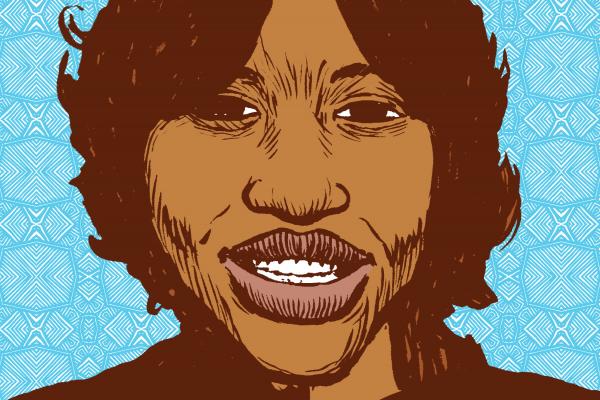Some might be scratching their heads, finding it difficult to understand why — in 2013, the same year that we commemorated the 50-year anniversary of the 16th Street Baptist Church bombings (in which four little black girls were killed by white Klansmen who were never arrested) and celebrated “how far we’ve come” as a society — we also witnessed the similarly unjust execution of Renisha McBride.
Perhaps we should tone down the celebrations. We haven’t come as far as we think.
In the early morning of Saturday, Nov. 2, Renisha McBride, 19-year-old black woman from Detroit, crashed her car in Dearborn, a predominantly white Detroit suburb. Lacking battery power for her cellphone, she approached a nearby home to ask for help. Theodore Paul Wafer, a white man, answered the door. He responded to her knock by shooting a firearm through a locked screen door, striking Renisha in the face and killing her. Police initially said that the white man mistook her for an intruder and shot her in self-defense, even though Renisha was unarmed and there is no evidence of her attempting to enter the house uninvited. Two weeks passed before Wafer was charged with second-degree murder and arrested. Wafer maintains that he acted in self-defense. If the recent George Zimmerman acquittal is any indication, it is entirely possible that justice will not come to pass.
A black woman is dead because a white man decided that she should die. A black woman is dead and there is no guarantee, that in 21st-century America, justice will be done.
This is America and this is not new.
I’d never heard of Renisha McBride until her death became a national news story a little more than two weeks ago. But in a way, I’ve known Renisha my whole life. Renisha’s story echoes the stories of black women across the arc of American history.
The film 12 Years A Slave depicted the brutal relationship between white masters and black slaves. This is no fiction. Blacks were blatantly devalued by the white men who ran society at that time. White masters decided who was valuable and who was not, whose life was worth preserving and whose was not. In a matter of moments, a white master could decide to extinguish a black life without anyone questioning his decisions or actions.
But unlike black men, black women were subject to sexism in addition to racism. This made their lives even more vulnerable than black men. In fact, black women were almost entirely valued based on their ability to sexually arouse their white masters. The black women who were light-skinned and/or possessed European features were deemed attractive/valuable and became “house niggers,” more “valuable” slaves who worked closely with the master in his home. (Of course, this was a falsely inflated value because the beauty associated with it was entirely defined by the white master and because those who were granted it were often subjected to rape and other forms of abuse.) Hello racism, meet sexism.
This pairing of racism and sexism continues today; the two “isms” interact to produce a society in which black women (and their bodies) are perceived as even less valuable than white females and black males (which are already shockingly devalued). For example, in the media and in the mind of the average white man, black female bodies are often negatively compared with white female bodies and are typically deemed valuable only if their physical features mostly conform to European-American standards of beauty (e.g., lighter skin, thinner physiques, long, straight hair). This powerful societal norm even affects young children. A 2010 study showed that kids aged 5-10 associate white female dolls with positive attributes (read: value) and black female dolls with negative attributes (read: not so much value).
Black women were relegated to the bottom of the social totem pole during slavery and continue to languish there today.
Indeed, calling films like 12 Years A Slave “historical films” is a bit misleading. They’re not so historical when you consider that the same power dynamics and narratives that defined the slavery era continue to dominate race/gender relations in the United States. The utter powerlessness of black women relative to white men that led to Renisha’s death and the utter lack of justice in the wake of her death is reminiscent of the most brutal scene in 12 Years A Slave in which a white master orders that a black woman (whom he had repeatedly raped) be stripped and whipped almost to the point of death. No one questions him. No one stops him. No one punishes him. 12 Years A Slave isn’t a historical film. It’s a current event film that captures the zeitgeist of a 21st-century America in which Trayvon Martin, Jonathan Ferrell, and Renisha McBride (just to name a few) have tragically and unjustly died at the hands of white males.
Much like the white masters during the slavery era, these men have yet to face the consequences of their actions. Justice remains elusive as the black bodies pile up.
Christena Cleveland, Ph.D. is a social psychologist, blogger and the author of Disunity in Christ: Uncovering the Hidden Forces that Keep Us Apart.
Got something to say about what you're reading? We value your feedback!
